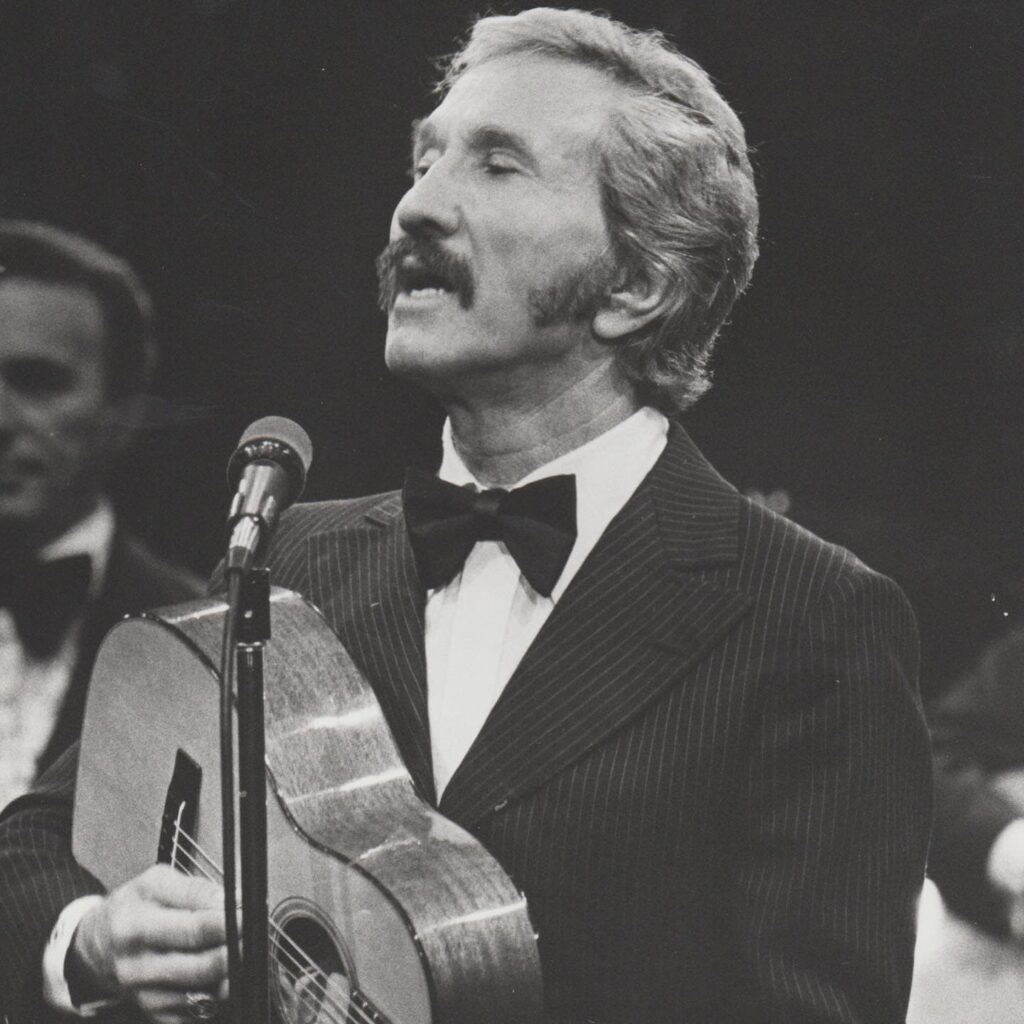
Marty Robbins’ “An Evening Prayer”: A Lyrical Testament to Faith and Solace
An Evening Prayer is a plea for divine guidance and peace at the close of a weary day.
Marty Robbins, the legendary troubadour whose voice could be as smooth as a desert breeze or as commanding as a gunslinger’s call, was a master of a thousand stories. He sang of dusty roads and forbidden love, but perhaps his most enduring narratives were those of a deeper, more personal faith. In 1957, during a career that was already a high-stakes gamble between country and pop, Robbins released a song that wasn’t a hit on the pop charts, but one that resonated with a quiet, profound power among his devoted listeners: “An Evening Prayer.” This wasn’t the kind of song that topped the charts or blared from jukeboxes; it was a hymn for a weary soul, a gentle benediction for the close of a long day. Released on the back of his massive pop hit “A White Sport Coat (And a Pink Carnation),” this gospel-tinged ballad stood in stark contrast to the rockabilly and teen-idol craze of the era. While “A White Sport Coat” captured the youthful angst of a Friday night date, “An Evening Prayer” was a Sunday morning reflection, a quiet moment of introspection. It wasn’t about chart positions—it didn’t even make it to the Billboard Hot 100—but it made its way into the hearts of many, a testament to the fact that not all music is meant for the top of the charts; some is meant for the soul.
The story behind the song is a reflection of Robbins’ own deeply held beliefs. Written by his close friend and frequent collaborator, Fred Rose, and published under the pseudonym B.W. Blevins, “An Evening Prayer” was a lyrical testament to the power of a simple, heartfelt prayer. The song’s genesis lies in a time when the world was changing at a dizzying pace, and people often sought refuge in the timeless comfort of faith. For Marty Robbins, who grew up with the sounds of gospel and hymns, the song was a natural fit. He wasn’t just singing the words; he was living them, infusing each syllable with a raw and genuine vulnerability. The song’s simple melody and spare arrangement, often featuring little more than an acoustic guitar and a gentle chorus, served to highlight the profound sincerity of the lyrics. It was a stripped-down performance that allowed the message to shine through, unadorned and pure.
The meaning of “An Evening Prayer” is as timeless as the act of prayer itself. It’s a moment of surrender and gratitude, a humble request for strength to face the challenges of tomorrow. The lyrics speak of a soul that has wandered and is now seeking to be brought back home. It’s a prayer not for worldly possessions or fame, but for spiritual peace and the grace to forgive and be forgiven. For an older generation, the song evokes a time when a day often ended with a quiet moment of reflection, when families gathered to offer thanks or seek comfort in shared faith. It’s a nostalgic journey back to a simpler time, a reminder of the values that anchored a generation through wars, social upheavals, and personal hardships. The song’s enduring appeal lies in its universal message: that no matter how difficult the day has been, there is always solace to be found in a quiet conversation with a higher power. It’s a lullaby for the spirit, a gentle reminder that we are not alone in our struggles.
In a career defined by innovation and stylistic shifts—from his early rockabilly records to his famous gunfighter ballads and his smooth countrypolitan sound—“An Evening Prayer” stands as a quiet but powerful cornerstone. It’s a testament to the spiritual depth that lay beneath the surface of his diverse musical output. While songs like “El Paso” and “Don’t Worry” may have defined his public persona, it’s songs like “An Evening Prayer” that reveal the heart of the man himself—a man who, for all his swagger and showmanship, found his greatest peace in the simple act of prayer. The song wasn’t just a recording; it was a moment of grace, a shared breath of faith between singer and listener. For those who grew up with this music, it’s more than a song; it’s a memory, a feeling, a prayer whispered at the end of a long, long day.